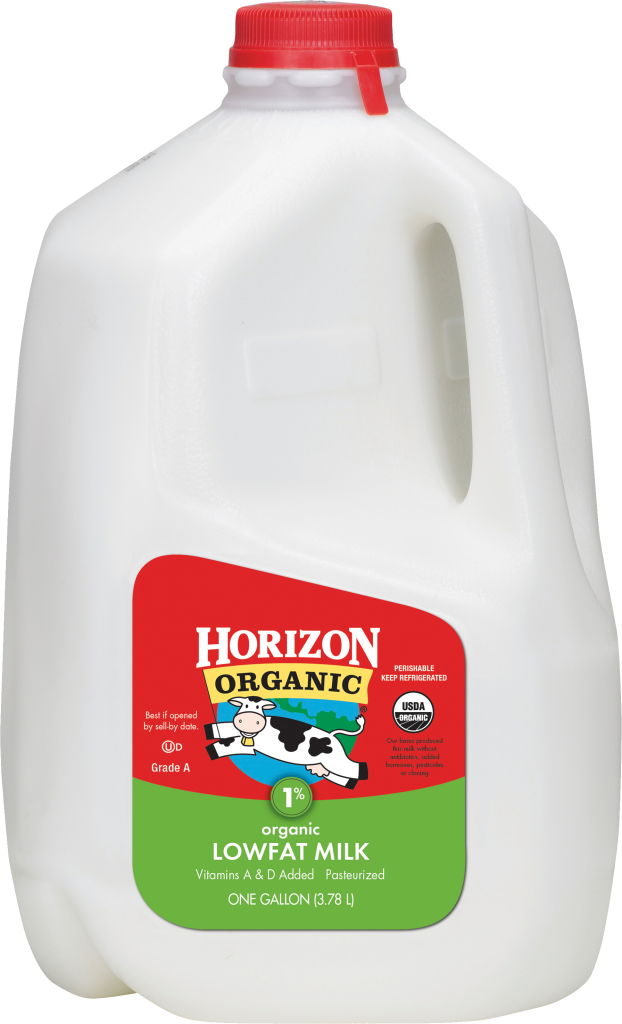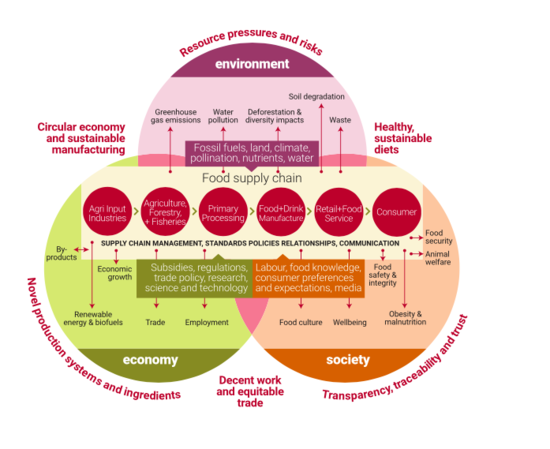Sustainable agriculture and food production are vital components of ensuring a secure and resilient food system for future generations. At the heart of this endeavor lies the crucial role of food science, which combines scientific knowledge and innovation to develop sustainable practices, enhance food quality and safety, and minimize environmental impacts.
Through research, technological advancements, and evidence-based solutions, food science plays a pivotal role in shaping a more sustainable and efficient food production system that can meet the growing global demand while preserving our natural resources.

Highlights
- Sustainable agriculture and food production involve practices that prioritize environmental, social, and economic considerations to ensure long-term viability.
- Food science is a multidisciplinary field that applies scientific principles to study the production, processing, preservation, and distribution of food.
- Sustainable agriculture and food production aim to meet present needs without compromising the ability of future generations to meet their own needs. It considers environmental, social, and economic aspects.
- Food science contributes to sustainability by reducing the environmental impact of food production, minimizing resource use, and optimizing food processing techniques.
- Food science addresses food waste by developing technologies and strategies to minimize post-harvest losses, improve food preservation, packaging, and utilize food by-products and waste.
Food safety knowledge is for all!

Every consumer deserves to have high quality and safe food. …Read more!

Sustainable agriculture and food production involve practices that prioritize environmental, social, and economic considerations to ensure long-term viability.
Food science, on the other hand, is a multidisciplinary field that applies scientific principles and knowledge to study the production, processing, preservation, and distribution of food. It encompasses areas such as food chemistry, microbiology, nutrition, engineering, and sensory evaluation. Food science plays a critical role in sustainable agriculture and food production by applying scientific knowledge and principles to enhance the efficiency, safety, quality, and sustainability of the food system.
Sustainability refers to the ability to meet present needs without compromising the ability of future generations to meet their own needs. In the context of food production and consumption, sustainability encompasses various aspects, including environmental, social, and economic considerations. It aims to ensure that the food system operates in a way that is environmentally responsible, socially equitable, and economically viable over the long term.
According to the Food and Agriculture Organization (FAO), a sustainable food system (SFS) is a food system that delivers food security and nutrition for all in such a way that the economic, social and environmental bases to generate food security and nutrition for future generations are not compromised.
This means that:
– It is profitable throughout (economic sustainability);
– It has broad-based benefits for society (social sustainability); and
– It has a positive or neutral impact on the natural environment (environmental sustainability)
The role of food science in sustainable agriculture and food production
Food science contributes to sustainability in several ways:
- Impact of food production on the environment: Food science plays a role in reducing the environmental impact of food production by developing sustainable farming practices, minimizing resource use, and optimizing food processing techniques. It promotes the efficient use of water, energy, and land resources, reduces greenhouse gas emissions, and mitigates pollution and waste generation.
- Food Waste Reduction: Food science addresses the issue of food waste by developing technologies and strategies to minimize post-harvest losses, improve food preservation and packaging, and find innovative ways to utilize food by-products and waste. By reducing waste throughout the food supply chain, food science helps conserve resources and reduce the environmental burden associated with food production.
- Nutritional Quality: Food science focuses on preserving and enhancing the nutritional quality of food. It studies the impact of processing and storage on nutrient content and develops methods to minimize nutrient losses. Additionally, food scientists work on fortifying food products with essential nutrients to address specific nutritional deficiencies. By ensuring the availability of nutritious food, food science promotes the health and well-being of individuals and communities.
- Efficient production practices: Food science plays a crucial role in developing and promoting efficient production practices that optimize resource use and minimize waste. This includes developing technologies for precision agriculture, crop improvement, and efficient irrigation systems.
- Nutritional value and food safety: Food science ensures that sustainable agriculture and food production focus on delivering nutritionally balanced and safe food to consumers. It involves research and development of methods to enhance the nutritional value of crops, improve food processing techniques, and implement effective food safety measures.
- Food preservation and storage: Food science contributes to sustainable agriculture by developing methods for food preservation and storage that minimize losses and waste. These methods include the use of innovative packaging techniques, controlled atmosphere storage, and processing technologies that extend the shelf life of perishable foods.
- Resource conservation: Food science plays a vital role in sustainable agriculture by developing technologies and practices that conserve natural resources. This includes the development of sustainable farming techniques, such as organic farming, integrated pest management, and precision agriculture, which minimize the use of chemical inputs and reduce environmental impact.
- Sustainable food processing: Food science plays a role in developing sustainable food processing technologies and practices that reduce energy consumption, water usage, and waste generation. This includes the development of energy-efficient food processing equipment, optimization of manufacturing processes, and the use of renewable energy sources in food production.
- Product development and innovation: Food science fosters innovation in sustainable agriculture and food production by developing new food products that are nutritious, environmentally friendly, and economically viable. This includes the research and development of plant-based alternatives, functional foods, and sustainable food ingredients.
- Consumer education and awareness: Food science contributes to sustainable agriculture by educating and raising consumer awareness about sustainable food choices. It involves providing accurate information about food production practices, labeling initiatives, and promoting sustainable consumption patterns that consider the social, economic, and environmental aspects of food production.
Image caption source: 3Keel
Our Blog ↗
Read the latest from our blog
Ask a Question ↗
Ask a question and get answers from our community
Give Feedback ↗
We value your feedback.


